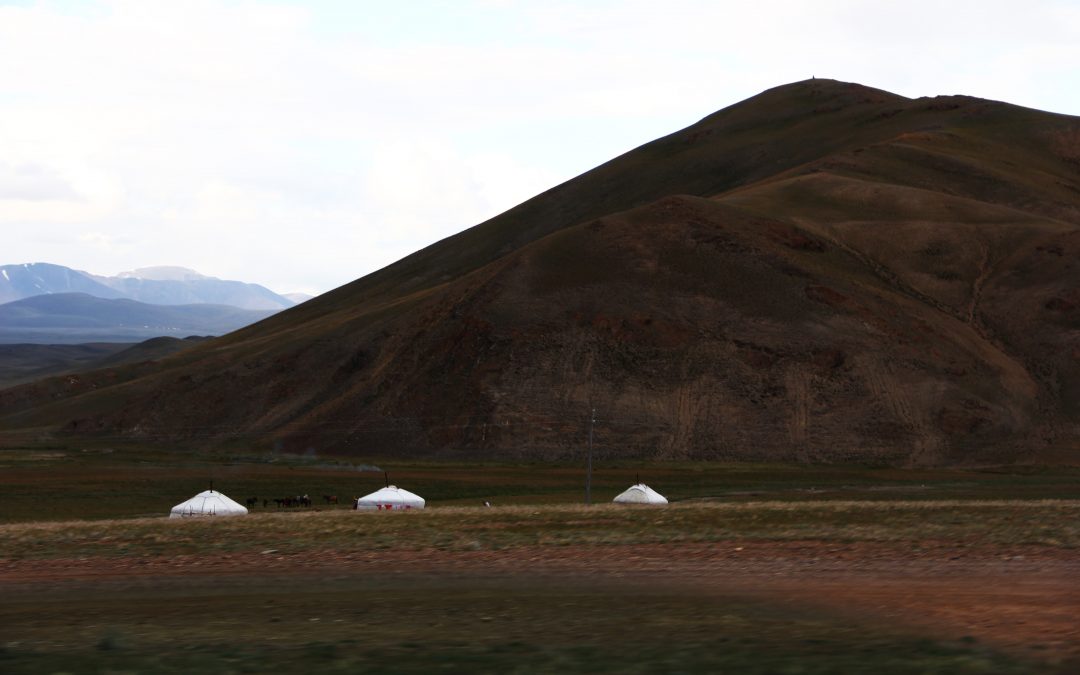by Robin Ewing
Thursday Aug 15, 2013
Mongolia is beautiful: broad, flat ranges of brushed green with pale flowers, white gers dotting the horizon, small horses with colorful bridles stamping past, blue lakes and glacier streams and mountains like crinkled tinfoil. Men in thick Mongolian deels belted at the waist bounce by on motorbikes. The world feels bigger than 360 degrees. The only other time I’ve felt this expansion, that there is still so much more to see behind me, was scuba diving.
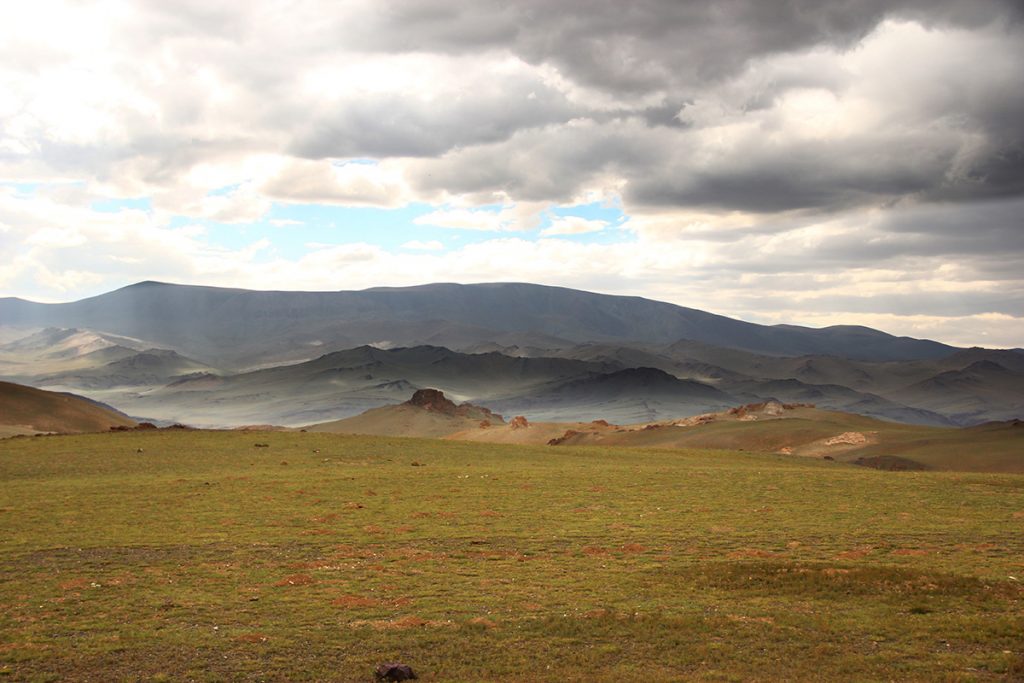
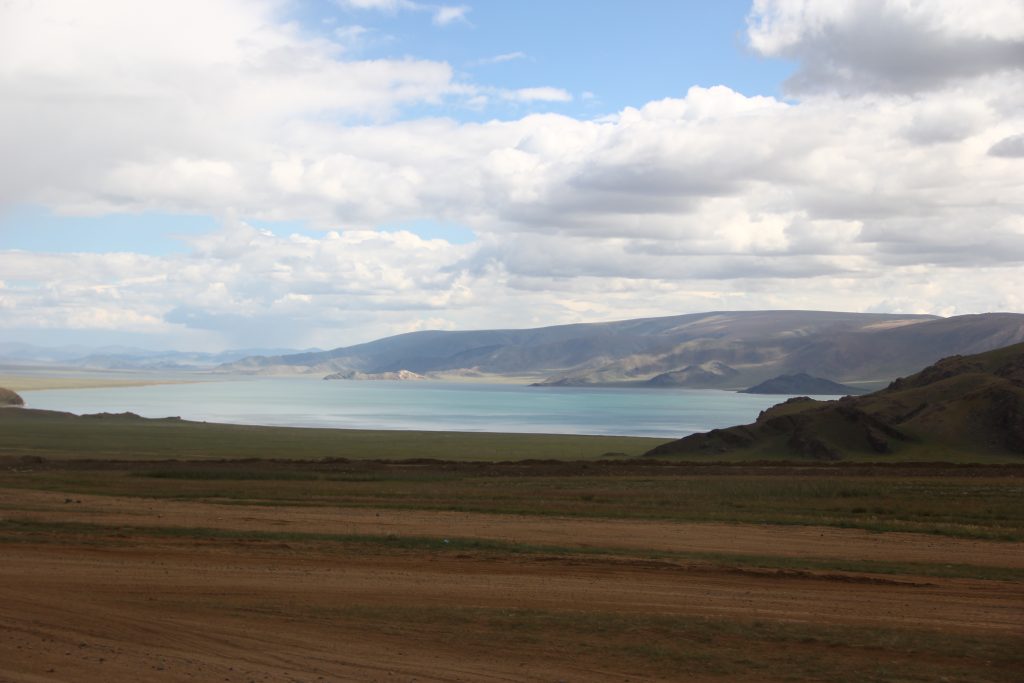
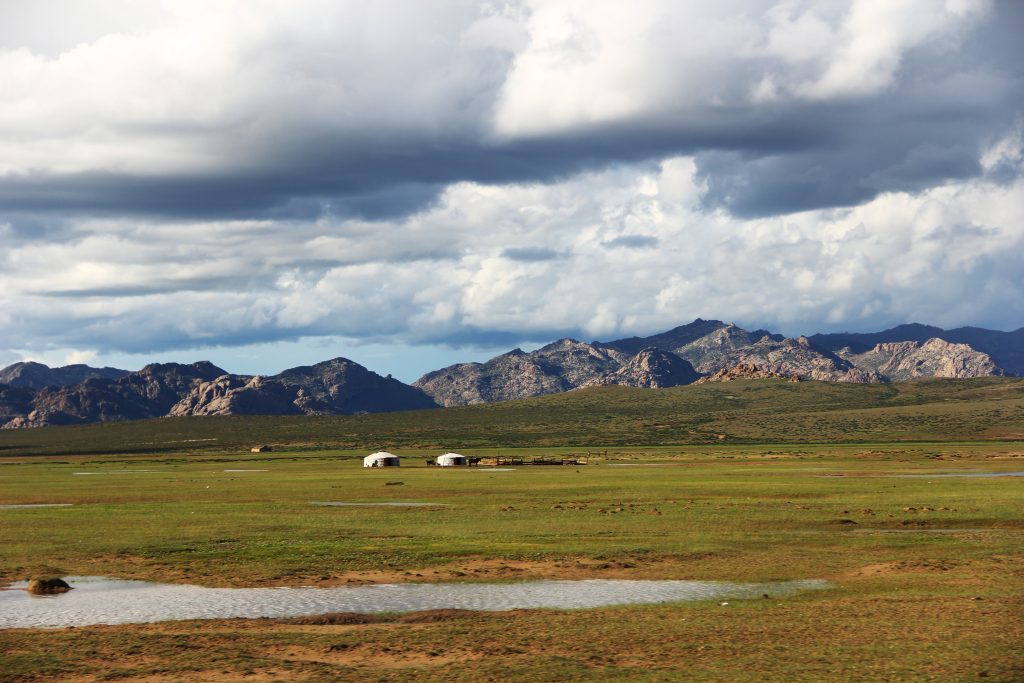
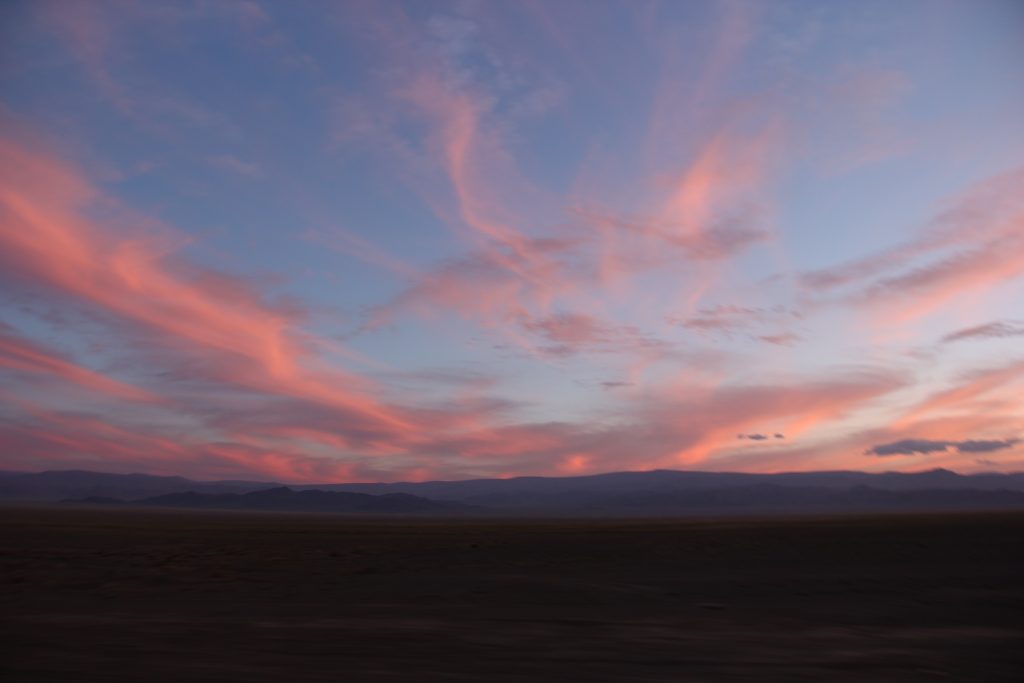
But the roads are hard. Sand becomes dirt becomes mud becomes rock. There are multiple tracks that all kind of seem to go in the same direction. There are few signs. We use the compass frequently. The Bandits ahead of us kick up tall clouds of dust that envelop us so we move to a parallel track. It doesn’t matter which side you drive on, they all have holes that materialize from nowhere and the bottom of the car scrapes, the sound of scratching metal making me wince each time. Sometimes, we’ll get a few minutes of asphalt, but it always abruptly ends in piles of dirt.
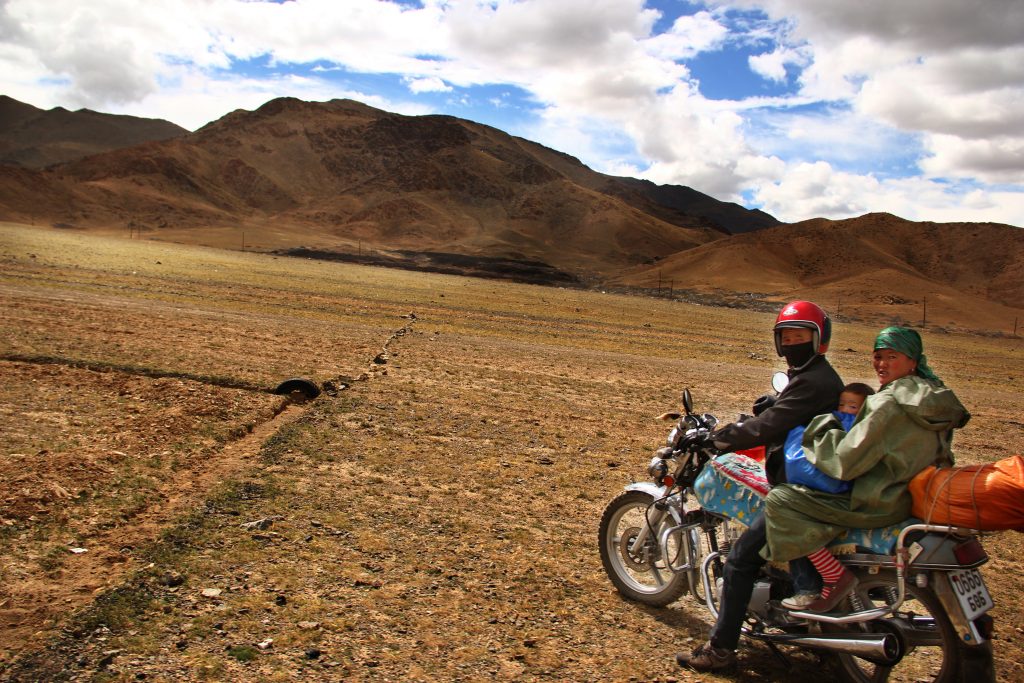
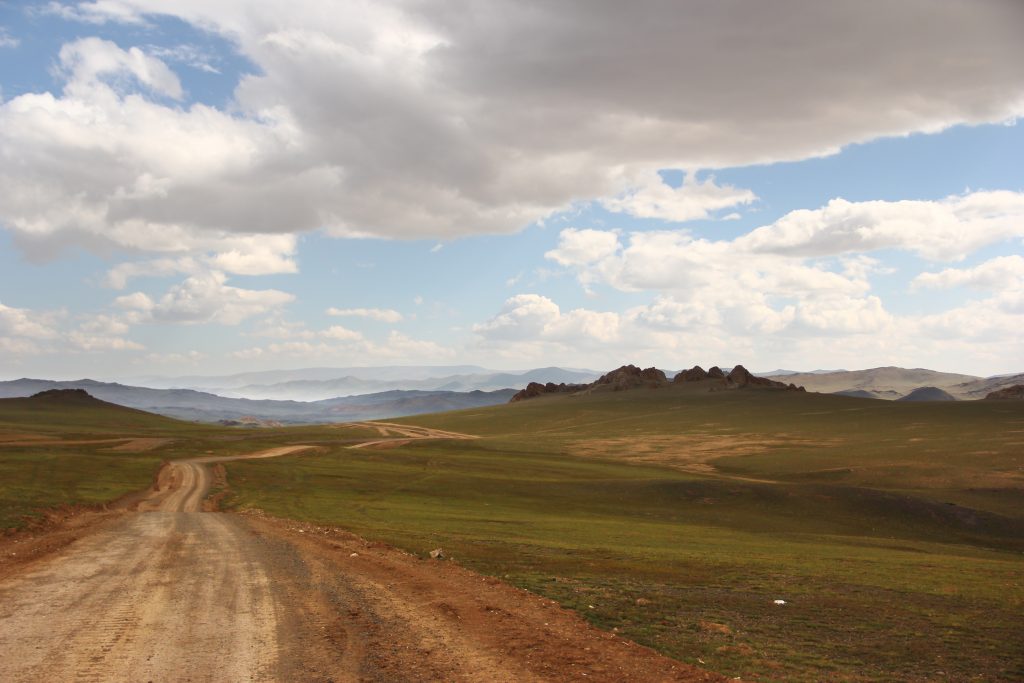
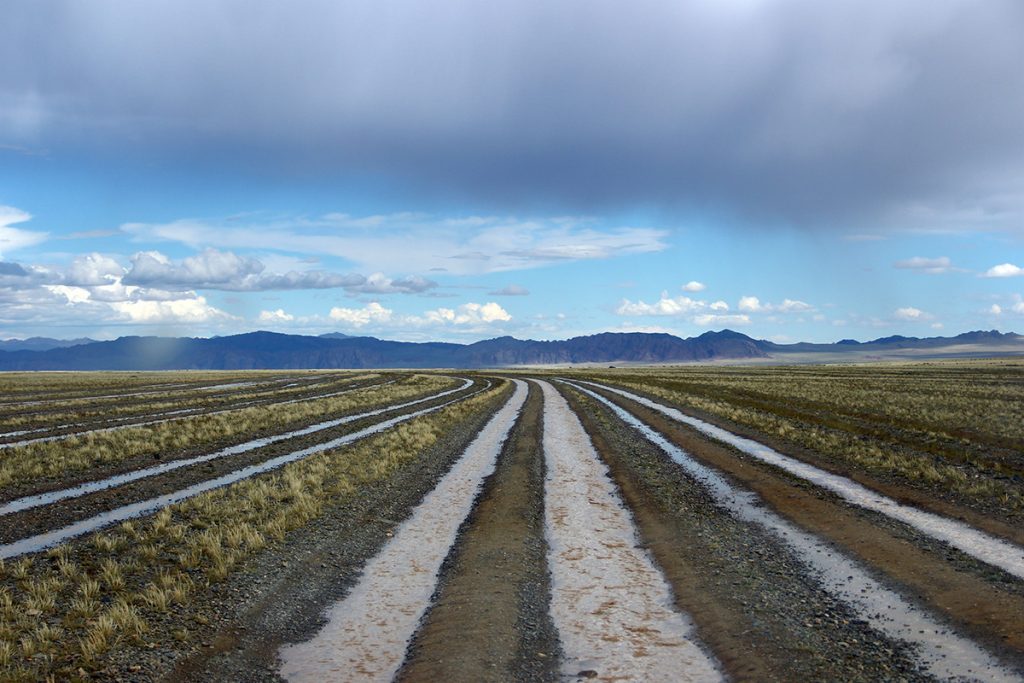
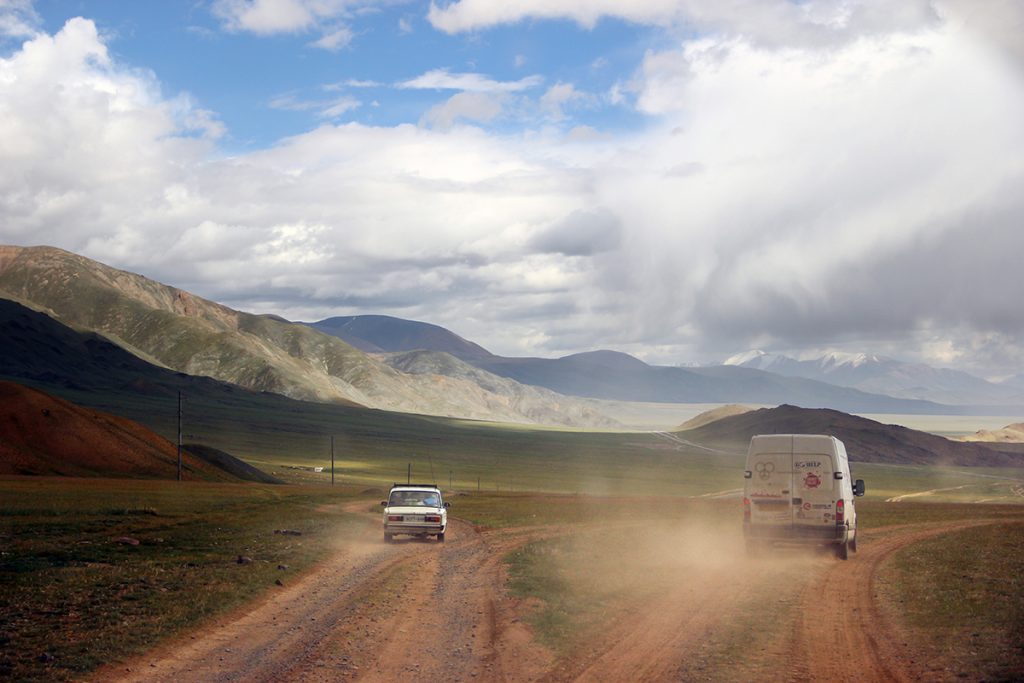
On day two in western Mongolia, a few hours outside of Olgii, we bottom out in a crater and the oil light comes on. We crawl under the van to examine the damage, and oil is streaming down into the dirt from a hole in the oil pan. Yoav pushes an old water bottle weighted down with rocks under the hole to catch the oil. Maybe some tape would fix it, one of us says. Tape fixes everything. Owen just shakes his head sadly at us.
We’re all staring at the oil leak when a truck pulls up. We pantomime a hole in the oil pan to the driver, he nods knowingly and then hands us some epoxy through his window. Much better than tape. Owen molds the putty into the hole and we wait for it to harden, like steel the instructions say. It holds. We refill the oil and the light goes off. Disaster averted. Then we try to drive off. We make it a few feet and the car dies. When we turn it on again, the gas pedal doesn’t respond. On the next try, the car doesn’t start at all. We pop the hood to check things out and the radiator drops a few inches. Opel has given up.
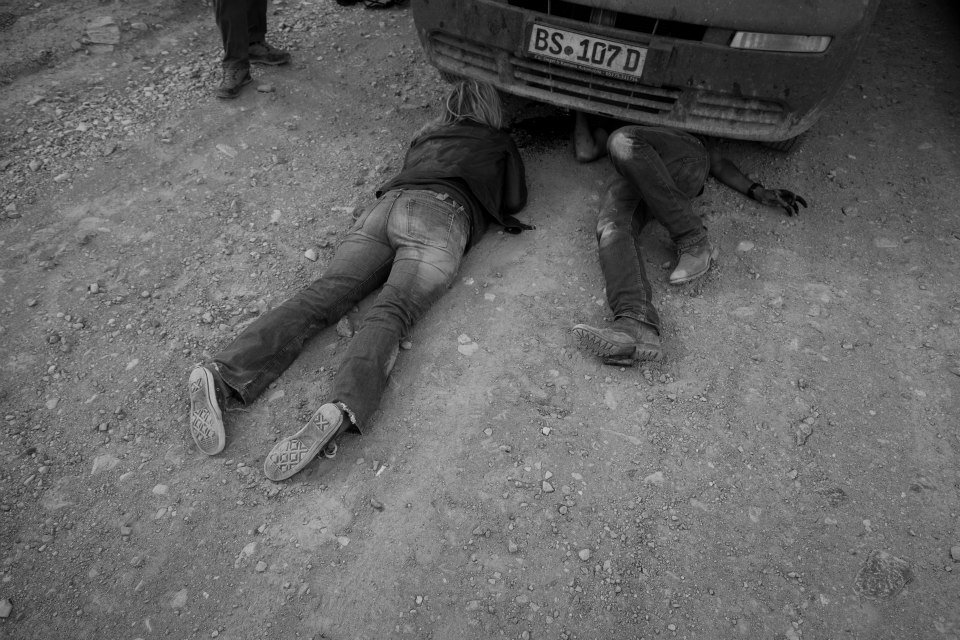
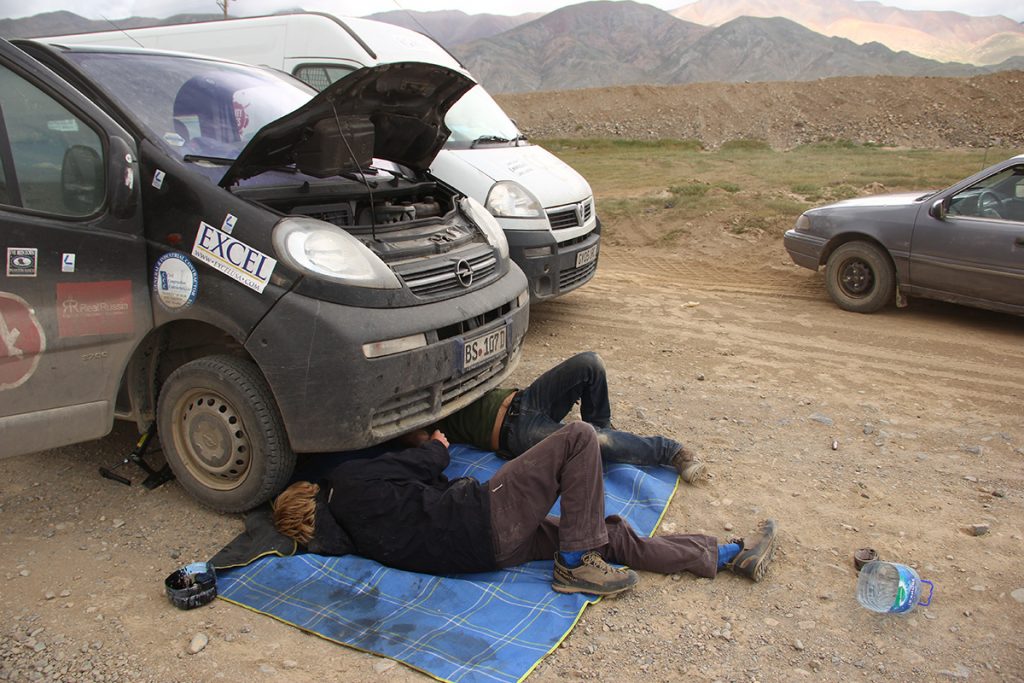
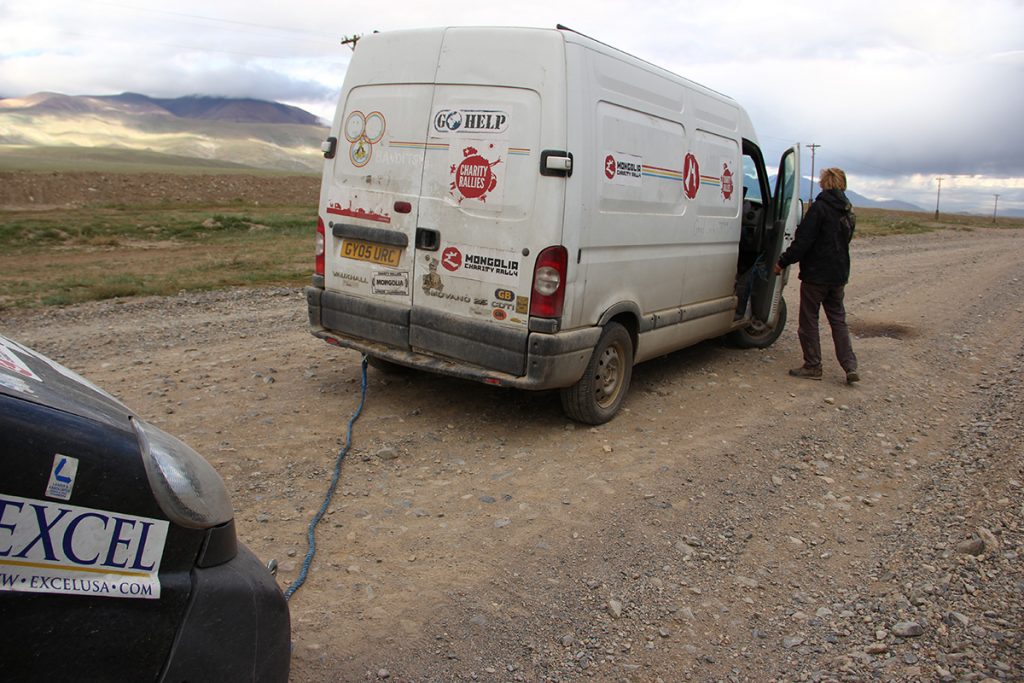
And so, once again, the Bandits tow us into town. The closest settlement is Tolbo, a tiny place with a few houses, a brick store and a mosque surrounded by some gers. I’m not at all hopeful. The village comes out to greet us. A bunch of men, yet again, fiddle with the engine to no avail. A woman named Janis comes out of the store to talk. She knows all about the rally, she says in excellent English. Last year the same thing happened.
I use Janis’s phone to call the charity rally office in Ulaanbaatar. They can send a mechanic but it will take at least a few days, maybe longer, the manager says. Do I want to wait? I look at a child, face crusted with snot and squatting in the cold dirt, and think about what I would do for a week in Tolbo. I’ll leave the van, I say.
As we meet more and more rally teams, my story is not uncommon. The Mongolian roads destroy cars. Every team I met had some sort of problem, many too big to fix on route. The Mongol Rally has mechanics and vehicle drop-off points in most major towns. At the mechanics in Altay was a van that had been there a year, someone said. My rally, the Mongolia Charity Rally, has a full time mechanic who travels around the country fixing cars. He was already on his way to Bayankhongor, a few hundred miles away. Tolbo is now next on his list.
I ask Janis if there are any cheap cars for sale in town I might buy. She looks at me sympathetically and says, No. The Bandits kindly offer to drive Yoav and me to Ulaanbaatar. They have turned the back of their van into a windowless bedroom/kitchen and the three of them ride together up front. A metal grate separates the two spaces. To see from the back, you have to push your face right up against the bars and grip it with your fingers. Or you can just give up and nap. We call it “riding cage.” It’s either that or hitch a ride. We opt to stick with the Bandits. They are not only a lot of fun, but great cooks too.
We push Opel into Janis’s bricked-in backyard and camp there for the night. There is even an outdoor toilet, a hole in the ground partly surrounded by a wall. We’ll be safe here from the drunks, Janis says. Almost on cue, a man lurches by outside moaning. “Drunk,” she says and looks at me knowingly.
It’s a cold and clear night. I’ve never seen so many stars, and one shoots across the black sky. In Mongolia, a shooting star means someone is dying. (The Falling Stars attack was also when the brutal Mongol horde would suddenly and savagely attack from all directions at once and then quickly disappear, leaving carnage and confusion in the sudden silence.) It’s not a good thing to see.
In the morning, we transfer all of our stuff to the Bandit’s van. It is a tight squeeze. Think of it like Tetris, Owen says. I pay Janis $50 to watch Opel until the mechanic shows up. We buy some chocolate from her and climb into the van, which the boys call “The Unit.” They feel sorry for us and let us sit in the front as we drive off, trying to figure out which of the many dirt tracks will take us out of town. Everyone waves vaguely in the direction of a mountain so we head that way.
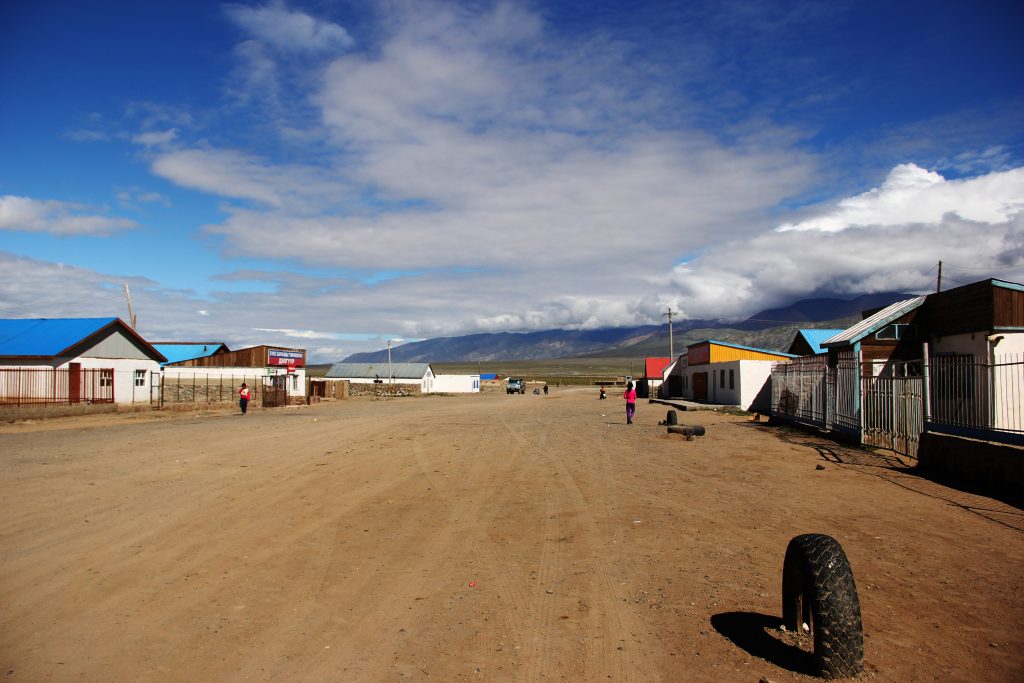
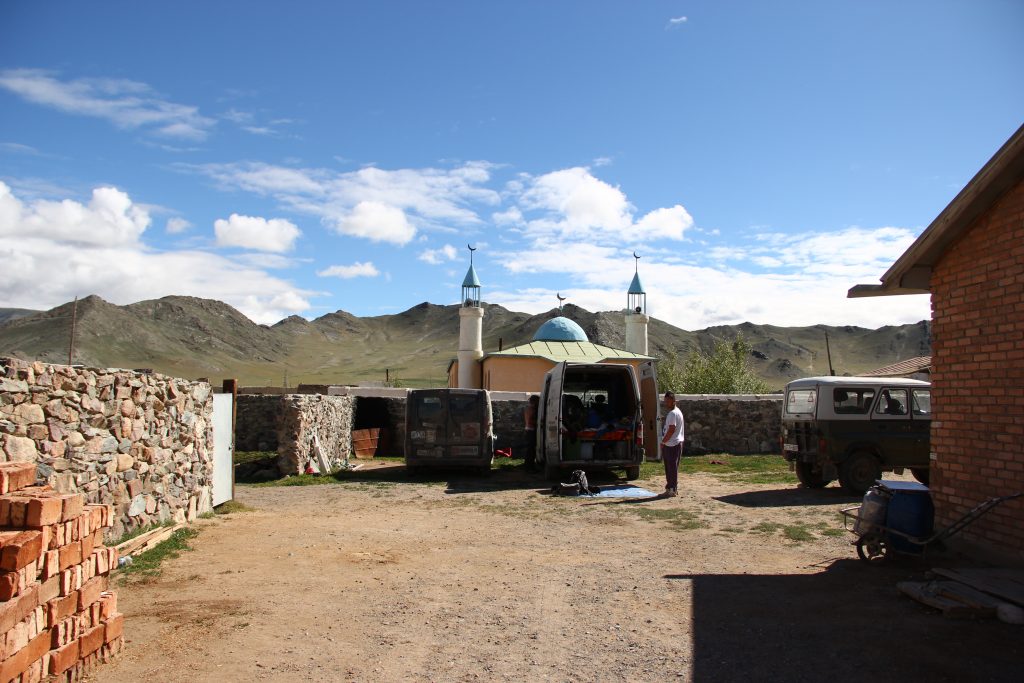
I get a last, sad little glimpse of Opel before the gate swings shut. She was a good van. A city girl. She’ll be great in Ulaanbaatar once she makes it there. The charity will fix her up. I wave goodbye to her and we rattle off. We both have a long journey ahead of us.

